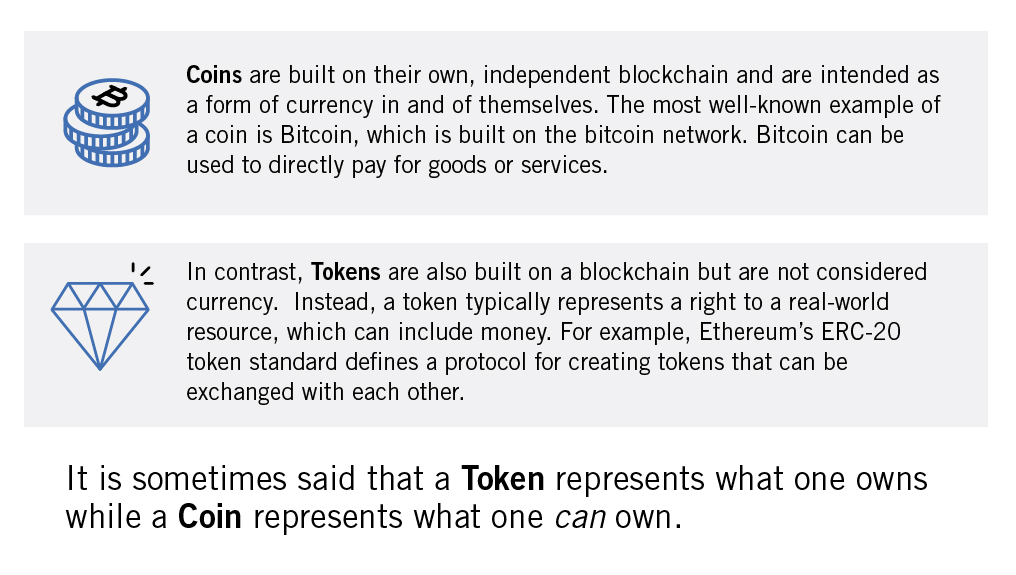
Today’s supply chains are frequently paper-based operations subject to human error and delay. Therefore, some companies are beginning to invest in digital infrastructure, including blockchain tools, to strengthen supply chain efficiency and visibility.
One benefit of using blockchain for supply chain management is that parties can cooperatively use smart contracts to make, track, and manage payments made in cryptocurrency (also referred to colloquially as “crypto”). For example, a smart contract may register and record acceptance of a shipment, triggering a notice message that payment is due to the supplier. A more advanced smart contract implementation allows the smart contract to go beyond sending a message and takes the next step to execute the crypto payment automatically.
Using Smart Contracts to Execute Payment
Using smart contracts to manage the execution of supply chain contracts and associated payments provides several beneficial features:
Accuracy
Smart contracts calculate payment amounts automatically, eliminating errors that may otherwise occur. Moreover, a smart contract can calculate payment amounts due to several parties for a single transaction almost instantaneously, regardless of geographic locations or cross-border issues.
Autonomy
Because smart contracts live on blockchain, they are highly resistant to tampering or manipulation, which makes them ideal for situations in which the parties to a transaction do not know each other well or when one of the parties operates in an unstable conventional economy.
highly resistant to tampering or manipulation, which makes them ideal for situations in which the parties to a transaction do not know each other well or when one of the parties operates in an unstable conventional economy.
Efficiency
Using smart contracts to execute payment automatically decreases the need for payment intermediaries and their associated fees. This is especially true for cross-border transactions because the parties making payment via smart contract typically use some form of cryptocurrency, which is a borderless currency. Payments made by cryptocurrency eliminate the need for currency conversion, which can be costly in terms of both fees and fiat currency fluctuation. However, cryptocurrency itself can be quite volatile; in 2021, Bitcoin’s value ranged from a low of $29,000 to a high of $69,000.00.1
Enforcement
Programmers can configure smart contracts to release payment to a provider upon the occurrence of one of more events (such as the verified acceptance of delivery of goods).The smart contract will hold the buyer’s payment until the occurrence of the programmed release event. If the release event does not occur, the smart contract will return the payment to the buyer.
Security
The currency used to pay for products or services in a smart contract, whether cryptocurrency or fiat currency, can be included in the smart contract itself. In those cases, there are fewer opportunities for payment information to be “skimmed’ and subsequently misused. When fiat currency is included in the smart contract, the payor’s bank and the receiver’s bank must also be on the blockchain, which is a step that is avoided when payment is made by cryptocurrency.
Non-repudiation
A smart contract can verify both delivery of goods and services, as well as the acceptance of the delivered goods and services. This reduces the opportunity for cancellations and chargebacks.
What’s the Difference between Crypto Coins and Tokens?
Payors typically make payments via smart contract in one of two forms of cryptocurrency: coins (such as Bitcoin) and tokens.

Blockchain-enabled supply chains can be implemented using either coins or tokens and the choice has subtle implications on the operation of smart contract payments in the supply chain.
Scenario 1 – Coin-based Supply Chain
In the scenario of a coin-based supply chain, the payor makes the smart contract payments with a coin defined by the blockchain. Since cryptocurrency coins have inherent value, a payee may use the coins received in the same way that the payee would use currency, including the exchange into fiat currency, such as the U.S. dollar. To facilitate the exchange into fiat currency, a coin-based payment structure may use a stablecoin, which is a cryptocoin tied to a selected form of fiat currency, such as the USD Coin, which is guaranteed to have a 1:1 ratio with the U.S. dollar.
Scenario 2 – Token-based Supply Chain
In the scenario of a token-based supply chain, the payor makes the smart contract payments with a token defined by the blockchain used in the supply chain transactions. Since the tokens have no inherent value, a payee cannot use the received tokens in the same way that the payee would use currency. Instead, the payee must use the tokens to secure other services provided by the blockchain-issuing ecosystem. For example, in a token-based supply chain, tokens may represent physical goods and possession of a token may entitle the bearer to one “tokenized” item.
Legal Considerations for Cryptocurrency Use
Although payment with cryptocurrency provides numerous advantages, payment with cryptocurrency also poses some legal challenges.
US Federal Income Tax Treatment
The federal income tax treatment of virtual currency is uncertain. In 2014, the IRS indicated that, for federal income tax purposes, virtual currency, such as Bitcoin, is treated as property rather than currency.2 Under this guidance, the receipt of virtual currency for payment is treated as the receipt of cash equal to the fair market value of the property upon receipt. Moreover, if the virtual currency is held as a capital asset, the holder can realize capital gains or losses in the currency when sold.
Securities Laws
William Hinman, Director of the SEC’s Division of Corporation Finance, opined on June 14, 2018 that Bitcoin and Ethereum specifically are not securities.3 However, the SEC has not clearly delineated when a cryptocurrency is considered a “security.” It is therefore not clear whether U.S. securities laws apply to a particular cryptocurrency.
Infrastructure Bill (Public Law No: 117-58)
Despite heavy opposition from the digital currency industry, the infrastructure package signed into law by President Joe Biden in late 2021 brought about a series of cryptocurrency tax reporting requirements that will go into effect starting in 2023.4 One such reporting requirement is that businesses receiving cryptocurrency payments of $10,000 or more must report the identity of the sender to the government, akin to the reporting requirement for cash transactions of the same amount.5
Smart Contracts and Blockchain
Because cryptocurrency transactions are accomplished using smart contracts on a blockchain, parties should also be cognizant of issues related to the legal recognition of smart contracts and contract terms related to blockchain. See Article 6 of this “Blockchain in Supply Chain” series for more information on the legal implications of blockchain in supply chain.
Despite these uncertainties, cryptocurrency payments via smart contracts could be a key to the success of 21st century supply chains.
————————————————————————————————————————————————
1 Bitcoin Price, Coinbase, (last retrieved November 16, 2021).
2 Notice 2014-21, IRS, (last retrieved November 16, 2021).
3 William Hinman, Digital Asset Transactions: When Howey Met Gary (Plastic), U.S. Securities and Exchange Commission (June 14, 2018).
4 Pub. L. 117-58; Davison, Laura, How Taxing Crypto Got Changed by Biden’s Infrastructure Law, Bloomberg (November 17, 2021).
5 Id.


